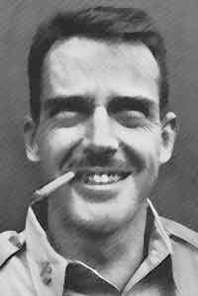January 2009




Eye Askant
Governance and political campaigns from a marketing perspective.







Today's politician is especially disabled.
For all his faults, Lansdale knew how to use media. While two Filipino composers, Antonio Buenaventura and Teo Baylen lay claim to creating the Magsaysay March, some sources, including the New York Times and the JSTOR Archives, attribute the song to Lansdale. He knew the clout of a good newspaper article: "he tried to influence Washington by persuading American journalists to write pieces like 'Ramon Magsaysay: Our Best Friend in Asia,'" wrote James Gibney in the New York Times in 2006.
The Cold War is over, the Ugly Americans are gone (Major Colonel Edward G. Lansdale was inspiration for the celebrated book "Ugly American"; the fictional character being "Colonel Edwin Hillandale")
That ad agency from Langley, Virginia is gone. Media has changed dramatically since. What used to be simply radio, TV and print, with billboards and posters thrown in for good measure, is now a plethora of 'contact points', various sources of information to choose from, depending on the media consumption patterns of the target audience.
The audience has splintered. Nobody below 35 years of age picks up a newspaper. If that sounds like a hyperbole, well, it isn't. The column feeds political organizations provide newspapers aren't read by a huge chunk of the voting population -- the young, historically the vanguard class.
Individually, media venues are in steady decay. Radio has been in a decline globally and locally for decades. Television is suffering from a surfeit of offerings: with hundreds of cable channels available, the voter is harder to reach, as he surfs through channels unavailable to local politicians.
Micro-minutes, the time between actual tasks, the time we spend waiting for a bus or walking to the car, are important to an advertiser utilizing billboards, to the local politician who is using recoridas and is plastering posters all over town. All members of all ages of the target market are bowed and unmindful of anything other than their cell phones. Smart and Globe owns the micro-minutes.
Today's politician is especially disabled. Unlike consumer brands, the manner by which politicians are publicized is inefficient, haphazard, prone to misunderstanding and malicious distortion.
Publicity in the news reduces him to soundbites, which oversimplifies what he wants to say (Justice Puno was reported by ABS-CBN as having said that he was definitely not running for president. the actual transcript has him more ambivalent). Public speeches are not appropriate venues to go deep into his advocacies and platform of government. And the 30-second technology of advertising restricts him to punchlines and jingles. See The Candidate
as a Brand.
Why governments disappoint.
The manner by which politicians are publicized is inefficient, haphazard, prone to misunderstanding and malicious distortion.


About the Professor

In his 35 years in advertising, Professor Pozon has been been involved, in varying degrees, independently and as an agency man, with political campaigns.
"This tape is a letter from General Lansdale to his wife, Helen. It was recorded in 1951, and a copy was made in 1953. General Lansdale and his friends sing and give personal news. After the letter, General Lansdale has recorded two Philippine campaign songs: "Magsaysay Mambo," and "Magsaysay March," both in support of Magsaysay. The songs are sung both in English and in Tagalog."
Register of the Edward Geary Lansdale Papers, 1910-1987
Continued: The One-eyed Man is King.

ARTICLES

The Candidate as a Brand: The politician is really very like a product. He needs to be known, his image easily recognized, his attributes and skills understood, his platform and promises made familiar to -- and desired by -- his target audience.
Why governments disappoint: Why governments can't win the governed.
Sa Bahay na Malaki: The Search for a Leader: It's not about poverty, or corruption or the economy. The political landscape is feudal, very feudal.
The City is a Country: Why a mayor is more equipped to run a country than any senator.
Advertising Lessons for Public Servants: Promil or presidential, the goals and methodologies are the same.
Creating Anti-hegemony: Opposition shouldn't just oppose, it should create and promote an alternative and viable ideal state.

Villanueva in Retrospection: The Curious Crowds of Bro. Eddie.
Pastor Ed Lapiz on the Villanueva bid: A staunch supporter writes about the BEV campaign.
Presidential campaign advertising commercials Philippine politics marketing strategies Villanueva TV spotspolitical campaigns from a marketing perspective Villanueva Noli De Castro Bishop Abante Velarde the religious voter SWS Pulse Asia Osmeña and Alfredo Lim Villar





